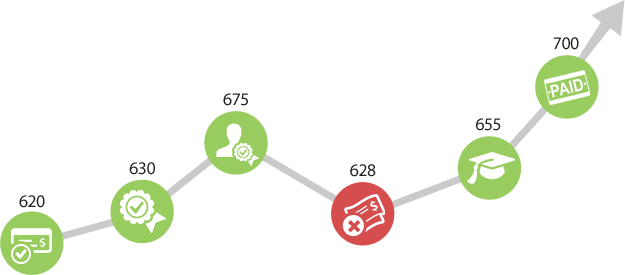Consumer Protection
When you’re facing a financial emergency, you may be less vigilant about checking out potential lenders than you otherwise would be. Unfortunately, unscrupulous operators are all too eager to take advantage of individuals facing desperate circumstances. However, a number of consumer protection measures have been put in place to shield individuals from predatory lenders and creditors
 The Military Lending Act of 2006
The Military Lending Act of 2006
You might have noticed that many online payday lenders actively discourage military personnel and their families from applying – or refuse to lend to military personnel altogether. That’s due in large part to the Military Lending Act of 2006, a consumer protection measure approved by Congress and signed into law by President George W. Bush. The Military Lending Act of 2006 prohibits lenders from making loans with annual percentage rates (APR) of more than 36 percent to military personnel and others in their households. It’s telling that instead of lowering interest rates and APRs, many payday lenders simply stopped lending to the nation’s men and women in uniform.
Operation Choke Point
The Consumer Finance Protection Board, a newly-formed consumer protection agency championed by the Obama Administration, has taken an active role in reducing the number of predatory loans, including payday loans. The CFPB has been especially vigorous in pursuing banks that collaborate with payday lenders. By processing ACH transactions from online payday lenders, banks effectively allow payday loan transactions in states where brick and mortar payday loan stores are prohibited. By focusing on banks, the CFPB is working to figuratively deny the necessary breathing room for online payday lenders perpetuate their predatory lending practices.
State Laws Prohibiting and Restricting Payday Loans
Individual states have also enacted consumer protection legislation designed to prohibit predatory lending practices. Several states, along with the District of Columbia, have placed outright bans on brick-and-mortar payday loan stores. Others have passed less stringent legislation – including limits on the number of payday loans individual consumers may hold or requiring a minimum repayment period for payday loans.
LoanNow: the Un-Payday Loan
LoanNow shares a few characteristics in common with payday lenders: we provide an online-only **application and fast processing, usually within 24 hours. † We also issue funds quickly after borrowers have been approved – in some cases within minutes.* But that’s where the similarity between LoanNow and payday lenders ends.
Unlike payday lenders who often approve almost anyone with an income, LoanNow employs a risk-based underwriting system that results in far fewer defaults than payday loans. We also structure our repayment period with manageable monthly installment payments rather than demanding payment in full within a week or two. And we say no to rollovers and renewals that can jack up the total amount that borrowers owe. We’re the un-payday lender! Let us show you the LoanNow difference today!








